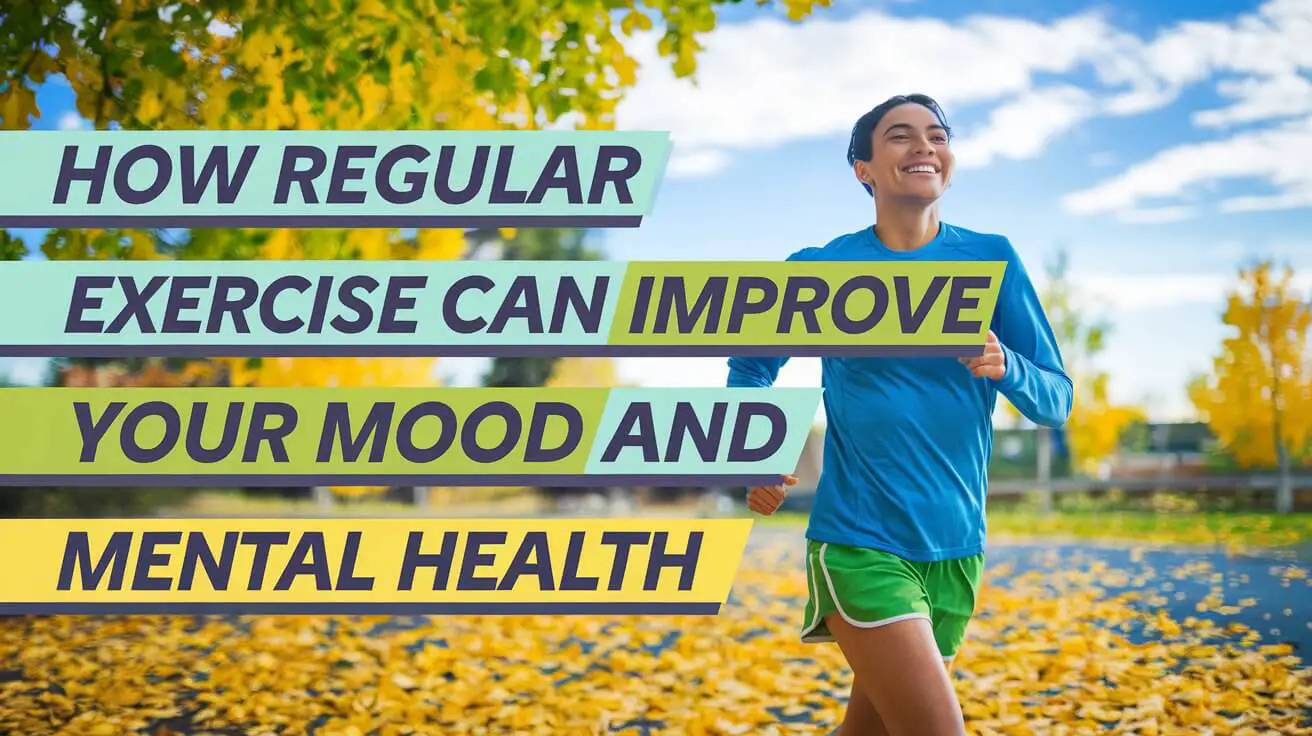Regular exercise can improve your mood and mental health in ways that often feel surprising. I didn’t fully believe it until I started exercising consistently. Like many people, I thought of exercise as something mainly for physical health – weight loss, muscle building, or heart health. What I didn’t expect was how much better I would feel mentally after making it part of my routine.

In this article, I’ll explain how regular exercise affects your mood, reduces stress, and helps with mental clarity. I’ll also share some of my personal experiences to show how small changes in daily activity can lead to big improvements in mental well-being.
The Link Between Exercise and Mental Health
It’s no secret that physical activity benefits the body, but its impact on mental health is just as important. When you exercise, your body releases chemicals called endorphins. These are often referred to as “feel-good” hormones because they help reduce feelings of pain and trigger positive emotions.
I noticed this firsthand when I started jogging a few times a week. On days when I felt stressed or overwhelmed, going for a run seemed to clear my head in ways that nothing else could. It wasn’t that my problems disappeared, but I felt calmer and better equipped to handle them afterward.
Exercise also lowers the levels of stress hormones like cortisol. This means that physical activity helps your body manage stress, preventing it from building up and leading to anxiety or depression.
How Exercise Improves Mood
-
Boosts Energy and Reduces Fatigue
There were days when I felt too tired to work out, but I often found that even a short walk or light stretch made me feel more energized. It seems counterintuitive, but regular exercise actually increases overall energy levels. It improves blood circulation and helps your body function more efficiently, reducing fatigue over time. -
Enhances Sleep Quality
For years, I struggled with falling asleep, often staying awake long after I went to bed. Once I started incorporating exercise into my routine, my sleep improved significantly. Regular physical activity helps regulate sleep patterns, making it easier to fall asleep and stay asleep. Better rest naturally improves mood and mental clarity during the day. -
Reduces Symptoms of Anxiety and Depression
One of the most noticeable changes for me was how much less anxious I felt after consistent exercise. I used to experience frequent episodes of restlessness, but regular workouts helped reduce that. Studies show that even low to moderate exercise, like walking or cycling, can significantly reduce symptoms of depression and anxiety. -
Improves Confidence and Self-Esteem
Exercise not only changes how you feel mentally but also how you see yourself. As I started getting stronger and more fit, I noticed a boost in my confidence. It wasn’t about drastic physical changes but the sense of accomplishment I felt after sticking to my exercise routine. Feeling stronger and healthier naturally improved how I carried myself throughout the day. -
Provides a Healthy Distraction
Exercise became a healthy way for me to take a break from overthinking. When I was focused on lifting weights, swimming, or following a workout video, my mind had a chance to disconnect from daily worries. This break often left me feeling refreshed and more positive afterward.
Simple Ways to Add Exercise to Your Day
Starting an exercise routine doesn’t mean you need to join a gym or commit to intense workouts. For me, it began with small steps—walking around my neighborhood after dinner or following 20-minute yoga videos online. The key is to find activities you enjoy so that exercise feels less like a chore and more like a part of your lifestyle.
Here are a few simple ways to incorporate exercise into your day:
-
Walking – One of the easiest and most effective forms of exercise. A 30-minute walk, even at a slow pace, can help boost mood and reduce stress.
-
Stretching or Yoga – This not only improves flexibility but also promotes relaxation. I found that starting my morning with 10 minutes of stretching improved my mood throughout the day.
-
Dancing – If traditional exercise feels boring, turn on some music and dance around the house. It’s fun, easy, and a great way to lift your mood.
-
Short Home Workouts – There are plenty of free workout videos available online that range from beginner to advanced levels. You don’t need equipment – bodyweight exercises can be just as effective.
-
Outdoor Activities – Activities like cycling, hiking, or swimming can be enjoyable ways to stay active and connect with nature, which also has positive effects on mental health.
Making Exercise a Habit
The hardest part for me was staying consistent. I used to start strong for a week or two and then stop when life got busy. What helped was creating a schedule and treating exercise like any other important task. Even if it was just a 15-minute walk, I made sure to prioritize it.
Another thing that kept me going was focusing on how I felt after exercising rather than how I looked. The mental benefits were motivation enough to keep showing up, even on days when I didn’t feel like it.
My Personal Experience
I remember one particularly stressful week when everything felt overwhelming. Instead of binge-watching TV, I decided to go for a long walk in the park. I didn’t have a specific goal, but by the time I got back, I felt lighter, both physically and mentally. That experience showed me how powerful even simple physical activity can be in shifting my mood.
Over time, regular exercise became more than just a habit for me – it became a form of self-care. It’s something I turn to not just to stay fit but to manage stress and keep my mind clear.
Conclusion
Regular exercise can improve your mood and mental health in ways that go beyond the physical. It helps reduce stress, boosts confidence, and provides a sense of accomplishment. Whether it’s a brisk walk, yoga, or dancing in your living room, moving your body can have lasting benefits for your mind.
If you’re looking for a way to improve your mental health, I recommend starting small. Find an activity you enjoy and slowly build it into your daily routine. The positive changes you feel will keep you coming back, not just for the physical benefits but for the mental clarity and peace that comes with it.
